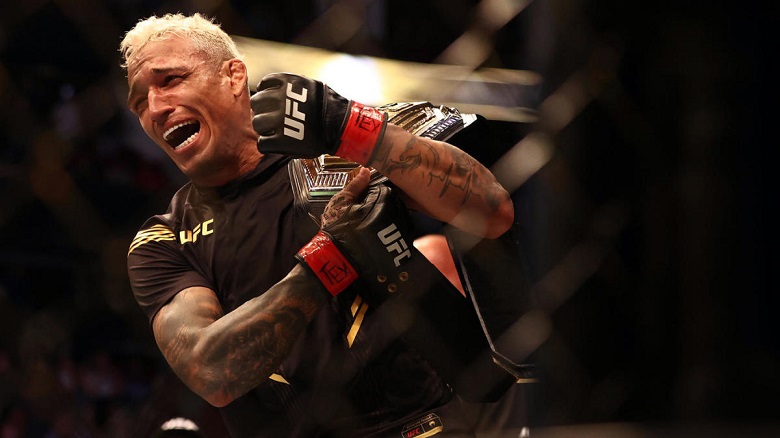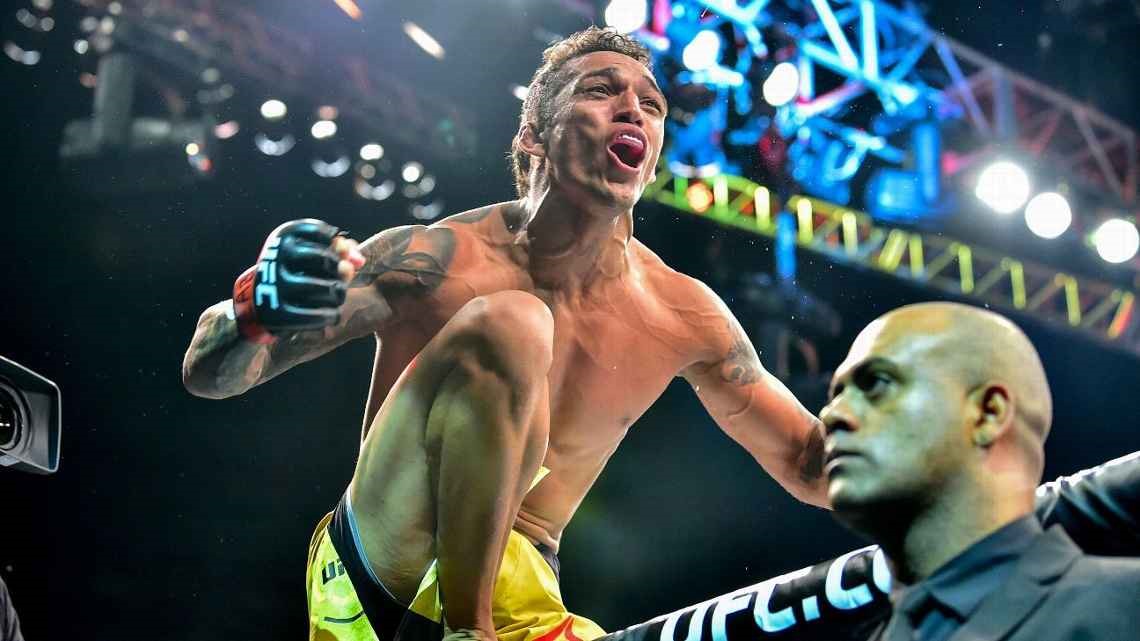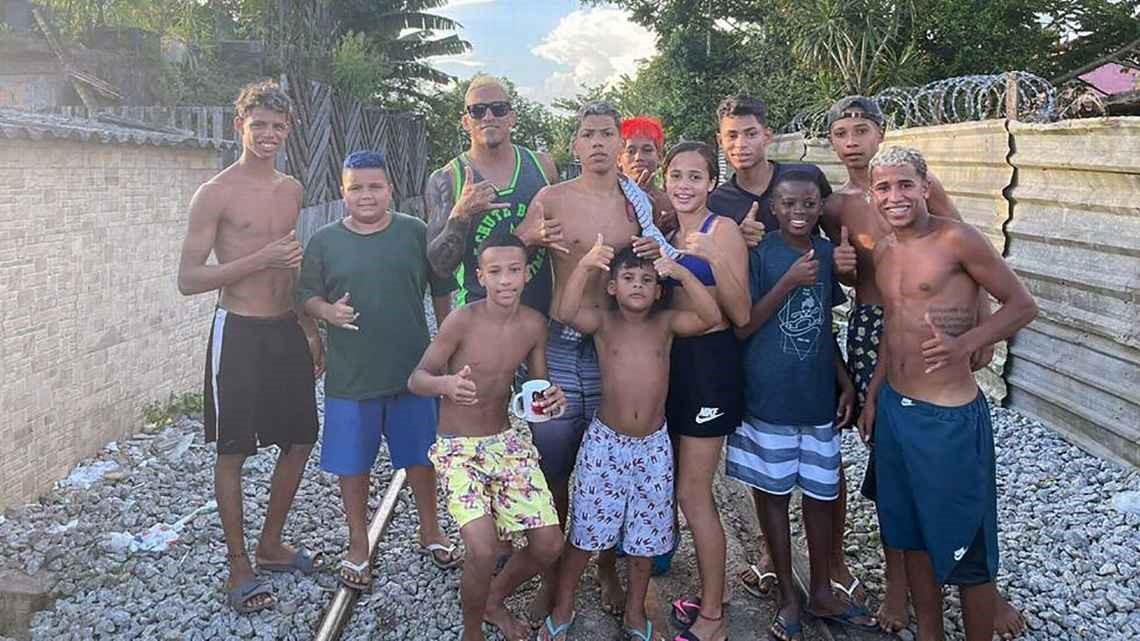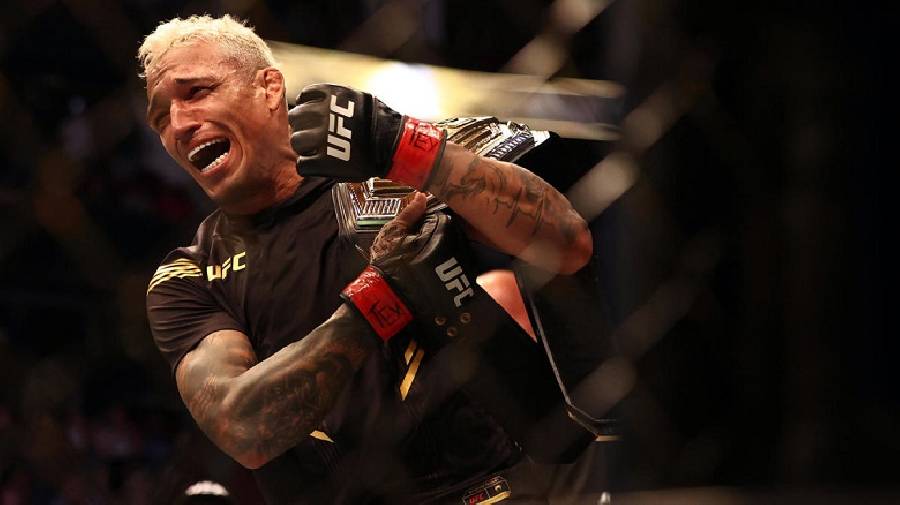At the Toyota Center player, the audience in Houston, USA, Charles Oliveira faced Michael Chandler in an attempt to win the light UFC championship by Khabib Nurmagomedov blank. Becoming a new champion, UFC 262 marked the peak of Oliveira's career, from a boy from Vicente de Carvalho slum in Guaruja, Brazil, to a world MMA champion.
Compared to rival Michael Chandler, the story of Charles Oliveira is still less known to the audience. But Oliveira absolutely deserves to be a martial artist with perseverance, effort, hard work and full of determination to overcome all difficulties.

“The doctors say I can't play sports”
Charles Oliveira was diagnosed with rheumatism in the ankle and the “heart murmurs” disease at the age of 7. Heart Murmurs involved in a heart valve, so Charles Oliveira was banned by doctors not allowed to exercise too much. Ozana Oliveira, Charles's mother, said her son had struggled with pain throughout his body and was difficult to move.
“The doctor said that the Contrai I would not go and would have to sit in a wheelchair. And we said we wouldn't accept it,” Ozana interviewed with ESPN Brazil.
Charles Oliveira never need a wheelchair and with active treatment – including the injection twice a month for many years – not long before he returned to his passion for sports: football.
“The doctors said that I couldn't play sports, but as I told my parents, I would rather die, not stop doing what I liked. I believe in this sport, I have faith in God, and who believed in me, as well as the one who blessed me to this day,” Oliveira interviewed.

Introduced to practice jiu-jitsu
Charles Oliveira and his younger brother Hermison, who is also a MMA boxer, made friends with a few children where his family rented a house on the street, and their friendship changed Oliveira's life.
“After a long time, Paulo, the father of our friend, whom we considered a uncle, took us to Jiu-Jitsu,” Oliveira said.
“If they want to go, it is also very good. They like Jiu-jitsu, but I say I can't afford it because the tuition is quite expensive.” Ms. Ozana added. As a cleaning and selling food on the street, she herself did not spend money to let her son learn martial arts.
At this time, the uncle Paulo appeared as a hero. He was the one who talked to the teacher Jiu-Jitsu to apply for scholarships for Charles Oliveira, so that the boy to learn Jiu-Jitsu for free. But Paulo was no longer alive to see his impact on Oliveira's life. Two years after Paulo introduced Oliveira to Jiu-Jitsu class, he was shot dead.
“He became a part of our family, because of his heart, respect for my parents, his affection for my brothers. Surely from heaven, he would see everything that happened in my life,” Oliveira said.
“I wished he was here, because he was the one who took us to Jiu-Jitsu. Surely he would be proud to see me today, because he always cheered for us. He once said that someday we will win and we will bring joy to my parents and for him.”
Charles Oliveira became a professional boxer at the age of 18, he currently holds the UFC record for the number of victories with 14 matches. Oliveira won 12-0 before joining UFC in 2010. He had an unspecified start in Featherweight. Realizing that this was not a suitable weight, Oliveira moved to Lightweight in 2017.

'Dobronx' – The martial artist came from the slum
Charles Oliveira still lives in Vicente de Carvalho, Guaruja, Brazil, near the house he grew up. The UFC champion is now a model for young people in his homeland.
According to ESPN Brazil, “Do Bronx” is the slang of Brazil to refer to someone “in the slum”, and Oliveira considered its background as a proud thing.
“I still live in Vicente de Carvalho. I think we have to be in the place we feel good. You have to be with the person you feel good, no matter who you are, how much you have, how you will become. I know where you come from and I know where I want to go, but not because I want to go away, I have to leave my origin,” Oliveira shared.
Oliveira said that now it is important for him to maintain a positive present in his homeland and show the children that even though he comes from the slum, they can still have a brighter future.

